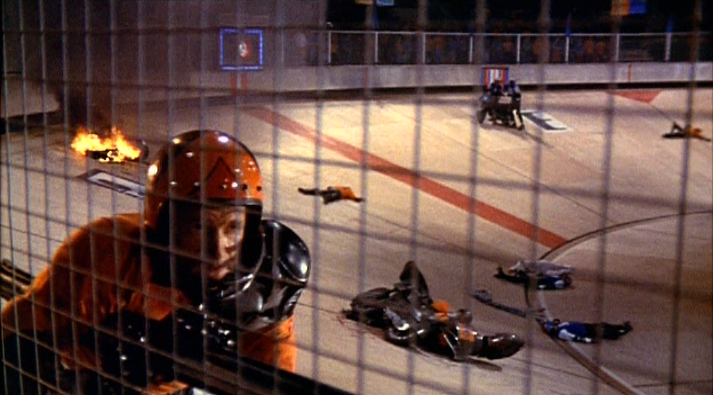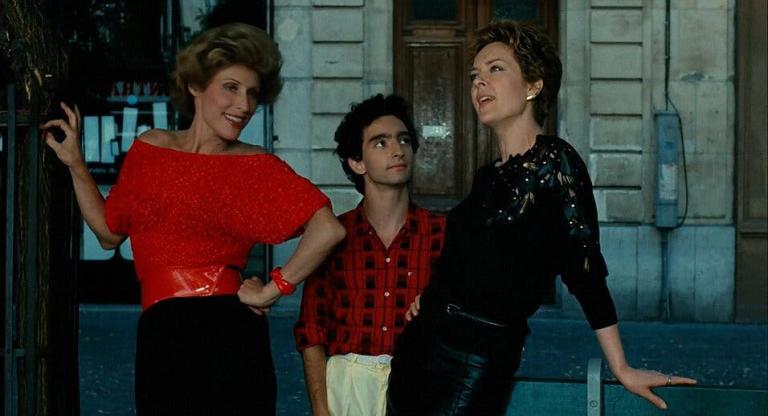Rollerball (1975) is less about the future and more about societal fears of unchecked corporate power, which have only intensified since it first hit theaters 50 years ago. Set in a dystopian near-future in which mega-corporations have replaced governments, the film follows Jonathan E. (James Caan), the star player of Houston’s Rollerball team: an ultra-violent sport that blends roller derby and motorcycle racing, functioning as both mass entertainment and a form of social control. When the chairman of the Energy Corporation and the team’s primary sponsor, Mr. Bartholomew (John Housemann, in one of many memorable villainous roles), offers Jonathan a lavish severance package if he retires during an upcoming television special celebrating his career, Jonathan declines and instead asks to see his wife Ella (Maud Adams), who was taken away from him years earlier by another corporate executive who wanted her for himself. His decision forces a confrontation that exposes the brutality the Committee’s control depends on.
Much like the tech giants shaping international politics while receiving high-ranking military titles despite their complete lack of experience, the Executive Committee rules the world through economic and cultural domination, not traditional governance. Jonathan’s age has nothing to do with his forced retirement, which is about eliminating a threat to the Committee’s power. The game was designed to publicly demonstrate the futility of individualism, yet Jonathan’s skill in the rink allowed him to rise above his teammates, skyrocketing in popularity and making the Committee nervous. His stardom challenges the disposability of workers and athletes within a profit-driven system, tossed to the side when they’re no longer useful to those in power. His refusal to comply with the Committee’s demands and retire gracefully exposes their playbook: when persuasion fails they rig the game, using the audience’s bloodlust to disguise the purge of a dissident. Just as modern oligarchs like Elon Musk and Peter Thiel blur the lines between corporations and politicians, the Committee uses Rollerball as a tool to maintain order, demonstrating the inevitable slide of unchecked corporate power into authoritarianism.
The matches themselves are filmed in a thrilling yet horrifying way that immerses the viewer in escalating violence. Just like modern media’s decades’ long obsession with sensationalism over substance, it is a spectacle intended to pacify the masses. The Committee doesn’t just control global resources, it controls perception and manufactures consent through entertainment. Caked in a distinctly 1970s aesthetic, Rollerball is a chilling prophecy of corporate fascism, where the illusion of freedom masks systemic control.
Rollerball screens on 35mm tonight, July 14, at the Roxie as part of “Fraenkel Film Festival 2025.”



